Rise of Rap City
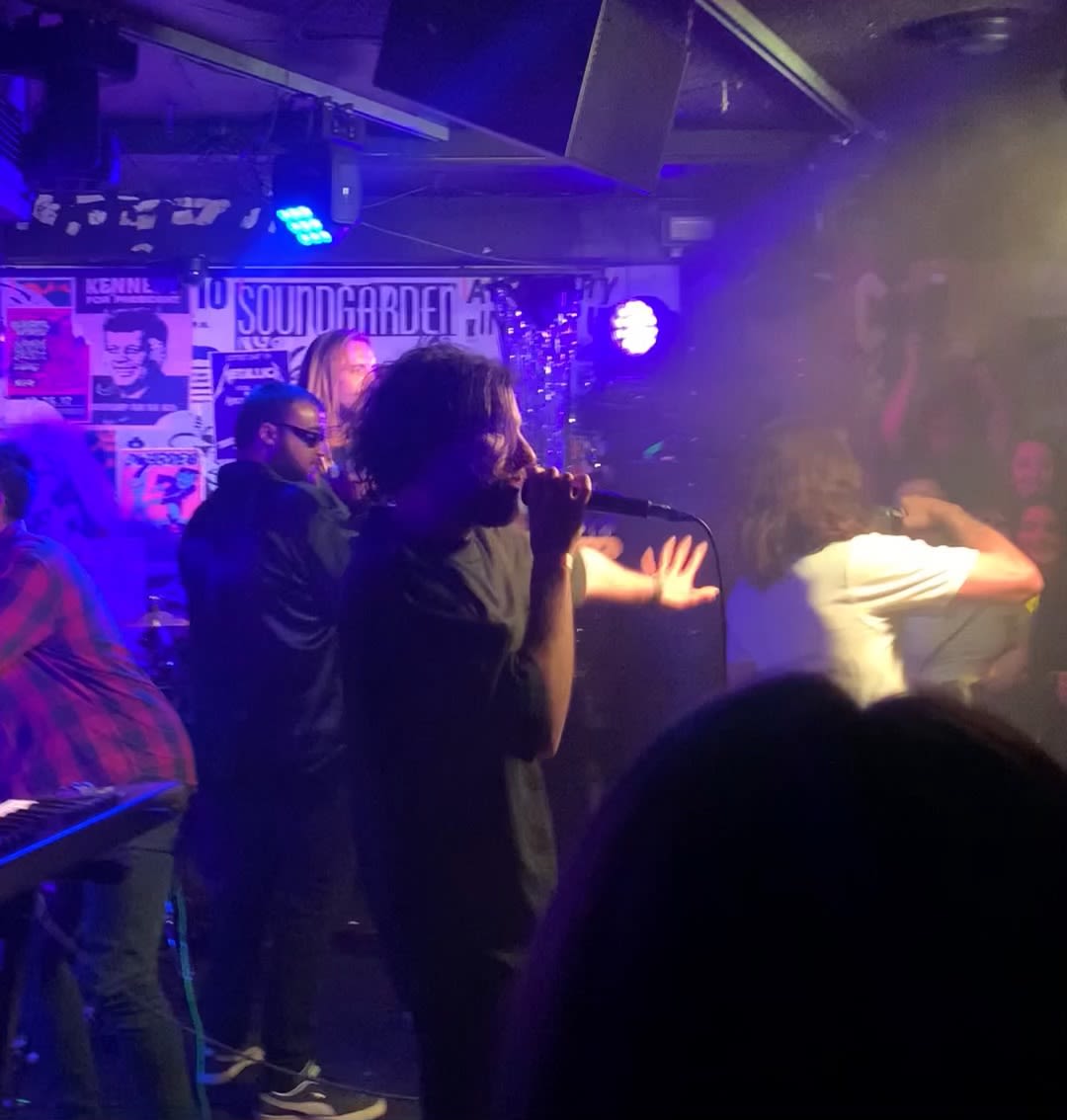
Australian hip hop has not always been met with embracing crowds.
From its birth in the 80s to what it is now, Australian rap has copped adversity from many different angles.
Today, hip hop stands in a different position and it is harbouring a community filled with support and acceptance.
This rise is being felt here in Perth.
Writing for Perth’s music platform, Pilerats, Hayden Davies says the rap scene is going through an era of glory on the back of an exciting uptick of fresh hip hop artists.
“It feels like a new rapper comes up every fortnight,” Mr Davies says.
“There have been four or five rappers with a deal in the last year, which has never happened before.”
Mr Davies says factors contributing to the uptick include bigger artists influencing local ones as “copycats”, producers in Perth uplifting circles of creators, and the pandemic giving artists a chance to take a break from work and focus on their music.
Mr Davies says he loves Perth hip hop gigs' high energy and the community feel.
“The energy is self-explanatory,” he says.
“A lot of these rappers have kids messaging them telling them they want to rap like them. It’s cool to see that at these gigs.”
Mr Davies says while there is crossover from Perth’s band audiences into hip hop, Australian rap has carved out its own space, as it often resonates with a different audience.
“In the past it has been reduced so much to what they call ‘barbecue rap’ but it’s so much more than that and it’s only now people are seeing it,” Mr Davies says.
Performing since 2018, Perth's Racka Chachi are bringing hip hop to a wider audience.
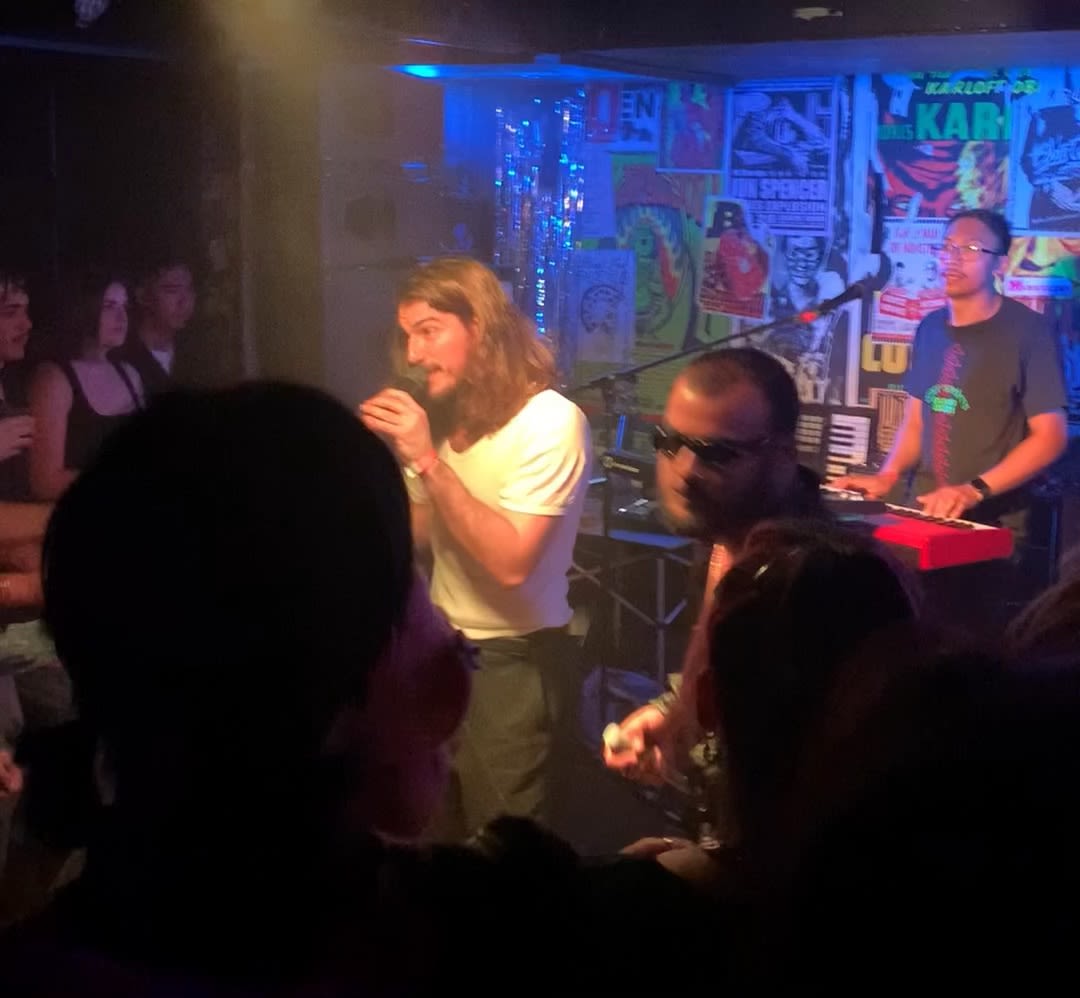
Raka Chachi’s work comes from a collaborative effort of 10 creatives.
The collective boasts the talents of producers, MCs, singers and musicians playing drums, bass guitar and keyboard, with influence coming from the Beastie Boys and The Cat Empire, all the way to Perth’s own Koi Child.
Producer and MC James Moretta says the group has often acted as a gateway for hip hop to groups of music lovers not usually exposed to it.
“We get billed on festivals that don’t have any hip hop representation, or we get billed on folk festivals or indie festivals or rock festivals and you see that captivating spirit of hip hop,” Moretta says.
“We’re a vehicle in which hip hop can actually come to these people.”
"Hip hop has a rich history of being a way to give a voice to the voiceless, an art form that builds a platform for what was commonly seen in history as the 'fringes' of western capitalist societies. Our goal is to always honour the history, spirit and energy of this art form," he says.
While Racka Chachi’s audience has been growing, with many new faces frequenting their crowds, there is a sentiment shared among the members that hip hop has often been “pigeonholed”.
“In a lot of cases I don’t think hip hop music in Perth has been given the platform it deserves in a lot of ways,” Moretta says.
Moretta draws on the ARIA awards as an example, where up until 2019 hip hop, R&B, soul, funk, reggae and dancehall were all flung together into one award, Best Urban Album.
Eddie Robless (DJ Tiple Dee) and Raed Kaldas (MC Sugar Ray) can attest to how far the Perth hip hop community has come, as some of the very first ones on the scene in 1983.
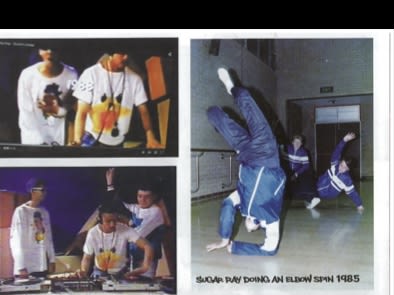
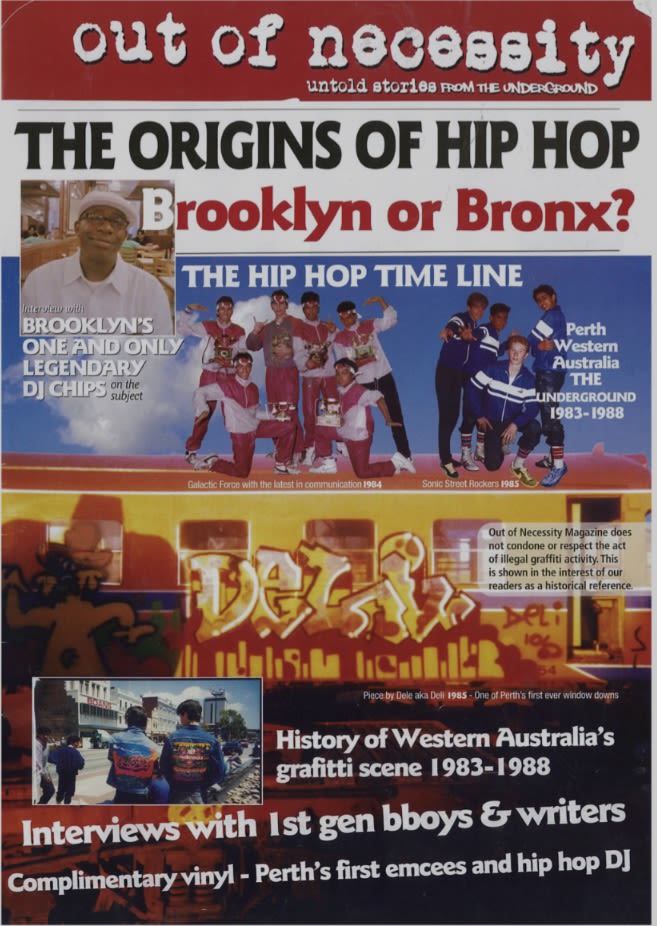
Out of Necessity magazine, produced by Edmund Robless in 2017
Out of Necessity magazine, produced by Edmund Robless in 2017
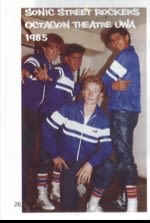
First generation B-boys, including Edmund Robless and Raed Kaldas
First generation B-boys, including Edmund Robless and Raed Kaldas
In ’84, Kaldas and Robless were part of one of the first b-boy hip hop crews, Sonic Street Rockers.
The different b-boy crews would meet every Saturday in Forrest Place, lay some fridge cardboard down and breakdance.
This culture came to Perth from American imports such as the film Breakdance, and larger artists such as Run-DMC, the Beastie Boys and Public Enemy, according to Kaldas.
“The great thing about it was there was every nationality there, and no one was acting weird,” Kaldas says.
“It was like this organic thing, like a rose that grew out of the concrete.”
Both Triple Dee and MC Sugar Ray went on to start the very first hip hop club in Perth city in 1987. Toffee Rox was located above where McDonalds and KFC are currently on William Street.
“[During] the first hip hop jams, it was like everyone came together, there’d be graffiti, there’d be turntables, there’d be DJs, there’d be rappers and the breakers would be breaking,” Kaldas says.
Robless was drawn to hip hop because of this collaborative essence and do-it-yourself spirit.
“Hip hop was like this collage of different art coming together, and being a bitsa, I just loved it,” Robless says, referring to his own Eurasian descent.
“Hip hop as an art had to come from within,” Robless says.
“It became a place for the poets, the dancers and artists wanting a place for self-expression they couldn’t find elsewhere.”
Learning through collaboration, Robless and Kaldas tell their hip hop story as one full of community and self-expression, however it was not seen for its positive qualities by everyone at the time.
Kaldas recalls a sign in Mirrabooka advertising a radio station reading “No Rap Crap” for a few years during the mid 90s.
“They were just hoping it would die,” he says.
“The hate was so strong you have no idea.”
Despite the adversity, hip hop became a place for a new form of masculinity according to Robless.
“Suddenly you had all these men dancing for each other, not courtship.”
Perth rapper Kodi Cunningham, signed with Golden Era Records, says the Australian hip hop scene has become a hybrid of other styles from all the other pockets of hip hop around the world.
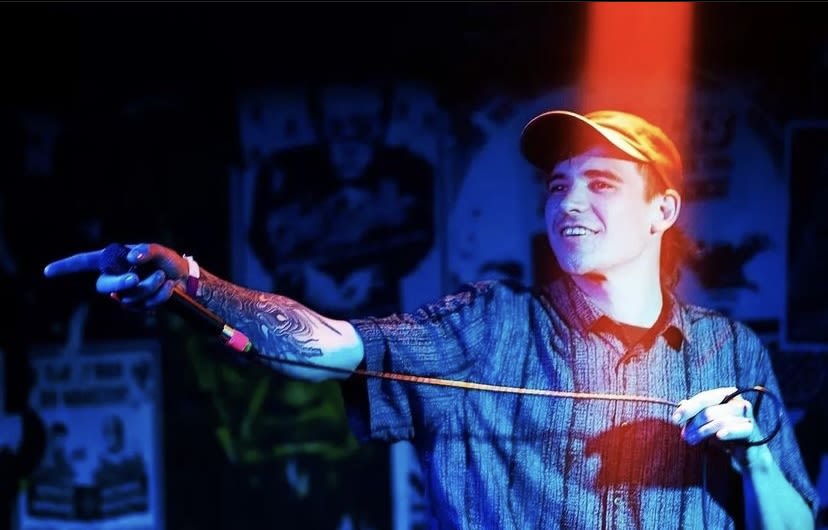
“We’re like in this nice spot where everything gets absorbed and inspires our own creation, especially in this recent spike,” he says.
“But the whole Aus hip hop banner that people switch off to when they hear it, they don’t allow themselves to dive into this massive thing, there’s so much going on.”
Cunningham says he found success in writing music about his own life, often touching on the harder or more emotional subjects.
In his latest Album, launched December 2nd, Cunningham says he goes "all in" referring to his rich life experience.
“Hip hop has been predominately about masculinity for a long time, and we’re now in that sort of space where we can be vulnerable,” he says.
“A lot of people, particularly men, need ways to express themselves because we feel like we’re not supposed to show signs of weakness.”
Racka Chachi released their song No Island last year delving into the themes of toxic masculinity.
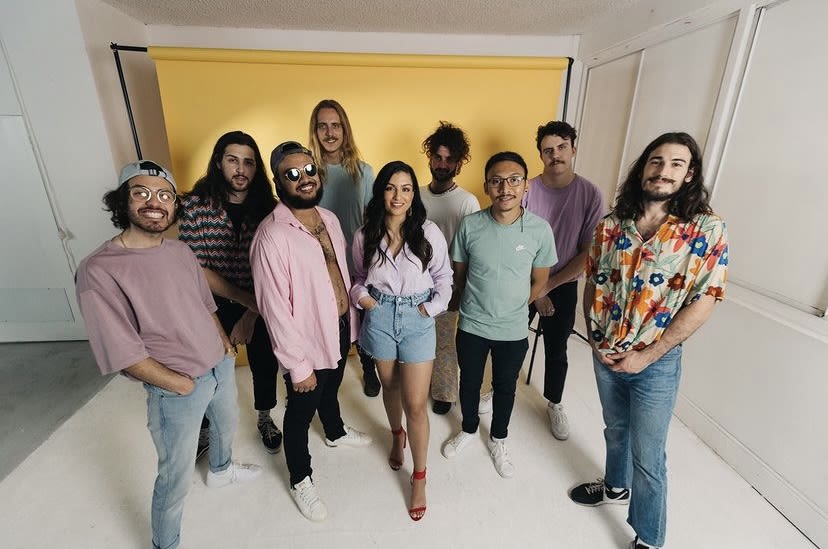
MC and Singer Miguel Vecchio says one inspiration was how an island was often been used as a metaphor for men.
“No matter how high the shores might rise, as long as the sea levels go back down the island is going to stay there, but it’s temperamental because if the sea level stays high, the island will seize to exist,” Vecchio says.
In this way, he says this is similar to how men are “trained” to keep their emotions in.
For Racka Chachi, hip hop has been a tool to express emotions and touch on heavier political subjects according to singer, Bianca Naya.
“It’s an energy that resonates with a wide, wide audience,” she says.
Racka Chachi released their latest single Scared to Love on November 26.
